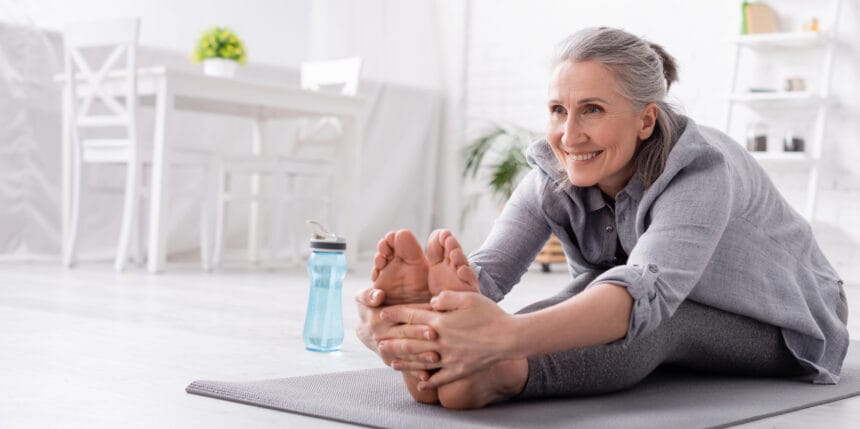According to the NYC Department for the Aging, over 1.5 million New Yorkers are aged 60 and older. With longer life expectancy comes a crucial question: how do you keep your mind active and engaged in the city that never slows down? The good news is that our brain is built to adapt, and a few simple habits can support its flexibility over time.
What Changes in the Brain with Age
As the years go by, the brain, just like the rest of the body, undergoes natural changes. Reaction times slow, names may become more difficult to recall, and tasks that once felt effortless may take a little more focus. These changes are perfectly normal, but they don’t mean cognitive decline is inevitable.
The brain is remarkably adaptable. A study by Cambridge scientists has shown that the brain actively compensates for these changes by using additional regions to maintain cognitive performance. This process, called compensatory scaffolding, helps older adults activate both hemispheres of the brain for tasks that younger individuals typically perform with just one hemisphere. In short, the brain finds new ways to stay efficient, even as it evolves. Take a look at the image below to see how it works.
But these adaptations aren’t solely a response to aging—some brains biologically age faster than others. A recent study from Stanford Medicine sheds new light on this phenomenon. By analyzing blood markers from over 5,600 adults, researchers found that different organs— including the brain— age at different rates. Some people’s brains show signs of accelerated aging, making them more vulnerable to cognitive decline. However, this doesn’t mean the process is irreversible. Early detection of these changes offers a chance to intervene—reinforcing the idea that brain health isn’t just about the passage of time but about how we treat it along the way.
As Dr. Betty Bigio, lead investigator at NYU Langone Health, points out, ‘The decline in acetyl-L-carnitine and free carnitine levels could serve as biomarkers for identifying those with Alzheimer’s disease and potentially those at greater risk for early brain aging.’
Regular brain health check-ups are becoming even more critical in light of findings like this. A study from NYU Langone Health revealed that these brain chemicals, essential for energy production and function, gradually decrease over time—particularly in women—and their decline is linked to cognitive impairment, including Alzheimer’s disease. Tracking these changes could provide an early warning, allowing for preventive action and better management of brain health.
So, why do some people remain sharp as they age while others experience cognitive decline? It all comes down to lifestyle. Just like our muscles need exercise to stay strong, the brain thrives on challenges—learning, socializing, and staying active. That’s why, if you want to stay sharp and independent as you age, keeping your brain engaged with daily mental exercises is a wonderful way to do it.
Games That Boost Cognition
You might think mobile games are simply a way to pass the time, but research shows that brain-training apps and online games can help adults over 60 improve memory, planning, and multitasking.
So, if you’re looking to keep your mind sharp, here are some excellent websites that can boost your cognitive skills:
— Online Chess or Lichess
Two platforms for playing chess with real opponents or against the computer. There are also daily puzzles, helpful lessons, and different game speeds, so you can play in a way that feels right for you.
— Britannica Quizzes
A trivia website filled with quizzes on history, geography, science, and famous figures. Challenge your memory with games like ‘Guess the U.S. City’, ‘Who Said It? Famous Quotes Quiz’, and ‘That Groovy ’70s Quiz’.
— AARP Games Center
AARP, a nonprofit for people 50+, has a collection of games designed to keep the mind engaged. You’ll find classics like Solitaire, crosswords to challenge your vocabulary, and arcade-style games for quick thinking and reflex training.
— Lumosity
Created by neuroscientists, games like ‘Train of Thought’ improve logic and planning, ‘Memory Matrix’ sharpens spatial recall, and ‘Ebb and Flow’ enhances cognitive flexibility.
— Happy Neuron
This website stimulates different areas of the brain with interactive games: Split Words (word association), Tower of Hanoi (logic and planning), and Echoic Memory (auditory recall).
Brain-Boosting Activities in NYC
If you’ve been feeling lonely, you’re not alone in that. Many people experience moments of isolation, but reaching out and connecting with others can truly help lift your spirits. Socializing doesn’t just brighten your day—it’s also great for your brain. Talking, laughing, and sharing stories keeps your mind active and your memory strong.
You can try something new for free or at a low cost in senior centers across the city. Ping-pong, theater arts, tai chi, zumba, and more—choose what you enjoy and spend time in good company while keeping your brain engaged through movement, coordination, and learning new skills. Find a center near you through the NYC Department for the Aging website.
Spending time in the city’s parks stimulates the brain in multiple ways: a change of scenery keeps the mind alert, outdoor spaces encourage social interaction, and activities that involve movement improve cognitive function. You can take part in programs like ‘Senior Cardio Sculpt’ to improve balance and coordination, or enjoy a ‘Queens County Farm Hayride’ for a fun sensory experience. For more information on local events, check out the NYC Parks website.
Whether you’re recalling history, analyzing art, or discussing an exhibit with a fellow visitor, museums in NYC provide a great mental workout. Many offer free or pay-what-you-wish admission for seniors. Here are some special programs for you to explore:
Lifestyle Habits for Brain Health
Keeping your brain sharp isn’t just about mental exercises—it’s about how you move, eat, and rest. Small daily choices can make a big difference.
Physical activity like chair yoga, dancing, tai chi, or swimming boosts blood flow to the brain, supporting memory and focus. But if you prefer something simpler, even a daily walk or light stretching at home can help keep your mind and body in sync.
Eating for brain health doesn’t require a strict diet. Simple swaps like adding nuts, berries, and leafy greens to your meals can support cognitive function. You can read more about brain-boosting foods on the Harvard Medical School website.
And quality sleep is essential—during deep rest, the brain clears out toxins that can build up throughout the day, consolidates memories, and strengthens neural connections. To improve sleep, establish a regular sleep schedule by going to bed and waking up at the same time every day, even on weekends, and avoid caffeine or heavy meals at least three hours before bedtime.
What If I’m Afraid to Be Active
We completely understand—it’s okay to feel hesitant about staying active. You might think, “Yoga, walking, or just being active—what if I fall or something goes wrong?” Many seniors begin their fitness journey with concerns like this, but with regular activity and the right support, these fears can be eased. Taking small steps, like starting with a short walk or gentle yoga session, can build confidence over time.
An alert system can help ease these concerns by providing added security. With the press of a button, help is always a call away—whether you’re at home, walking, or out enjoying nature. Systems like the BeWell Mini Lightweight Mobile even feature automatic fall detection, sending help if you fall and can’t reach the button. And if you want to track your activity and heart rate, the Active Alert Smartwatch lets you monitor your steps and health data, giving you peace of mind while staying active.
The key is to move at your own pace, knowing you’re supported. Because staying active shouldn’t feel daunting—it should feel freeing. With the right tools, you can embrace movement with confidence, one small step at a time.
Explore your options and find the perfect fit at bewellalert.






